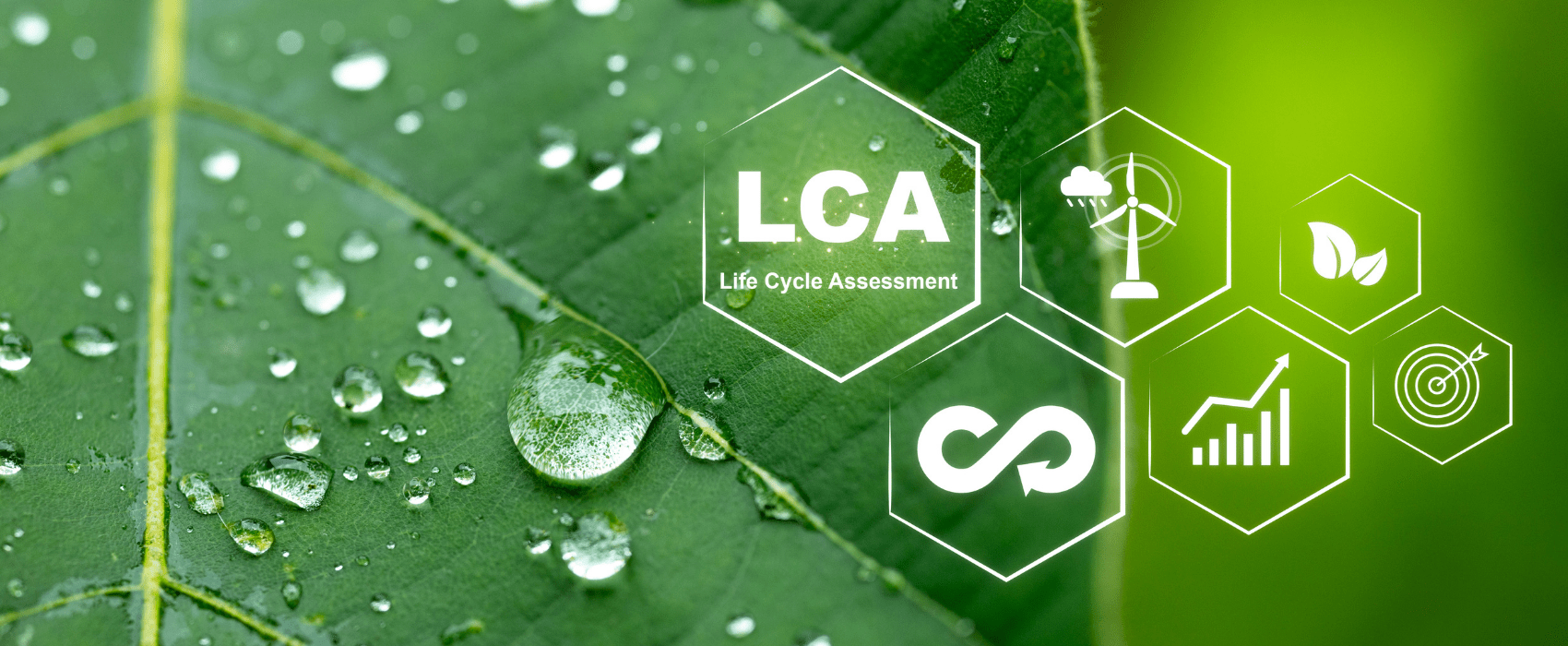
For UK businesses, understanding and quantifying their environmental impact is paramount, and that’s where a Life Cycle Assessment (LCA) comes in.
A Life Cycle Assessment is a comprehensive methodology that evaluates the environmental impact associated with all stages of a product’s life. This includes raw material extraction through processing, manufacturing, distribution, use, repair and maintenance, and disposal or recycling. It provides a holistic view, moving beyond just carbon data to consider a wide range of environmental factors.
Who needs a Life Cycle Assessment?
- Product Management/Research & Development (R&D): To comply with sustainability regulations and develop new products that are low in emissions with materials that influence the environmental impact of the end product. Conducting an LCA in the design stage helps to avoid emissions in the first place, rather than adapting products to mitigate.
- Supply Chain Management/Procurement: To support decisions in choosing the right supplier base, and incentivising improved carbon efficiency
- Marketing & Sales: To communicate the sustainability of your products to your customers in a realistic, data-supported way
- Executive Level & Strategic Management: To consider pivots to the organisational strategy in the context of product portfolio data relating to carbon
Why does your UK business need one now?
The reasons are compelling:
- Meeting evolving regulations: The UK is committed to ambitious environmental targets, and regulations are constantly tightening. For example, the Corporate Sustainability Reporting Directive (CSRD) requirements for robust ESG and sustainability reporting are steadily filtering down from larger to smaller organisations. LCAs can help you get more accurate and foundational Scope 3 data. This data is needed to meet sustainability reporting standards.
- Cost efficiencies and savings: LCAs help identify emissions hotspots and inefficiencies within your supply chain and operations. By understanding where your greatest environmental impacts (hotspots) occur, you can identify opportunities to reduce waste, optimise processes, and minimise energy consumption, leading to significant cost reductions. Studies have shown that companies that effectively manage their environmental impact see a positive effect on their bottom line. A 2014 meta-analysis by the University of Oxford and Arabesque Partners found that 88% of companies with robust sustainability practices demonstrate better operational performance, which ultimately translates into cash flows, and 80% showed a positive influence on stock price performance. We have also recognised opportunities to reduce the embodied carbon of components within Unipart’s own Rail products by up to 90%, through alternative material selection with the same fit, form, and functionality.
- Alignment with stakeholder goals: Consumers, investors, and business partners are increasingly prioritising sustainability. Transparent environmental performance, backed by rigorous LCA data, builds credibility and trust. This can differentiate your business from competitors, enhance your market positioning, and prevent carbon ‘leakage’ in your supply chain. A 2022 study by NYU Stern’s Centre for Sustainable Business found that products marketed as sustainable grew 5.6x faster than conventionally marketed products, accounting for 17.3% of the market in 2021.
- Future-proofing operations: Proactive engagement with sustainability through LCAs allow you to develop a resilient supply chain ready for evolving market and regulatory demands. It provides a clear pathway to lower emissions and achieve Net Zero goals.
- Building Scalability in the Supply Chain: Understanding the carbon impact at a product and portfolio level should play into the overall supply chain strategy of organisations. It is imperative that the supply chain can be segmented and that the organisations most challenged can be supported to improve, or replaced by more responsible providers. LCA at the portfolio level allows this pinpointing and drives scalability, responsibility and often efficiency in doing so.
The results from an LCA can be applied to identify positive process changes that can lead to sustained carbon-conscious supply chains:
- Environmental impact reduction
- Resource optimisation and waste reduction
- Sustainable product design and procurement
- Supply chain optimisation
- Cost savings by identifying wasteful practices within the product life cycle
- Transparency and credibility
- Policy making and regulations compliance
- End-of-Life management
Dan McLaughlin, Unipart’s Consulting Sustainability Lead, commented: “In the evolving business landscape with an increasing focus on sustainability, delaying a Life Cycle Assessment is like trying to build a new house without looking at local planning regulations, while your competitors are already laying foundations with a detailed blueprint. As sustainability experts, we know proactive LCAs are your critical blueprint for identifying environmental hotspots, securing cost efficiencies, bolstering your reputation, and future-proofing your business for a resilient and profitable Net Zero future.”
At Unipart, our sustainability experts help businesses like yours navigate these complexities and achieve tangible benefits through a comprehensive LCA approach.

